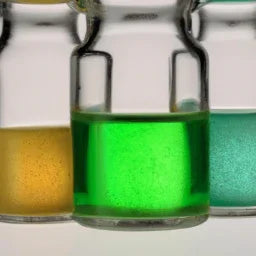In the world of scientific research and experimentation, having the right lab reagents is not merely beneficial—it is essential. Lab reagents facilitate chemical reactions, support various analyses, and enhance the quality of research outcomes. However, with a vast array of reagents available, knowing which ones are essential can be overwhelming for both novice and experienced scientists alike. This article aims to demystify the key lab reagents every scientist should know, providing a valuable resource that ensures your experiments yield accurate and reliable results.
Understanding Lab Reagents
Lab reagents can be classified into different categories based on their function, origin, and the type of experiments in which they are used. Broadly speaking, a reagent is a substance or compound added to a system to cause a chemical reaction or to see whether a reaction occurs. Familiarizing yourself with the basic definitions and functions of these reagents is the first step toward a successful scientific inquiry.
Essential Categories of Lab Reagents
The following sections elaborate on the essential categories of lab reagents that scientists frequently encounter and utilize in their work.
1. Acids and Bases
Acids and bases are foundational to many biochemical processes. They are crucial for adjusting pH levels in solutions, which can significantly affect chemical reactions and biological activities.
- Hydrochloric Acid (HCl): Commonly used for titrations and as a strong acid in various applications.
- Sulfuric Acid (H2SO4): Known for its dehydrating properties and is instrumental in synthesis reactions.
- Acetic Acid (CH3COOH): A weak acid widely used in buffer solutions.
- Sodium Hydroxide (NaOH): A strong base used to neutralize acids and often participates in saponification reactions.
2. Buffers
Buffers maintain a stable pH in a solution, vital for biochemical experiments.
- Phosphate Buffer: Effective in biological systems, helping to stabilize pH changes.
- Tris Buffer: Commonly used in molecular biology, it provides excellent buffering capacity.
3. Salts
Salts play various roles, from providing essential ions to acting as catalysts.
- Sodium Chloride (NaCl): Used in biological contexts, such as in cell culture media.
- Potassium Chloride (KCl): Important for physiological studies and solutions.
4. Organic Solvents
Organic solvents are critical for the dissolution and extraction of compounds in organic chemistry.
- Acetone: Commonly used for cleaning and as a solvent in reactions.
- Ethanol: Widely used for its solvent properties and as a sterilizing agent.
5. Reagents for Specific Reactions
Some reagents are specifically tailored for particular types of chemical reactions or analyses.
- Phenolphthalein: A pH indicator useful for determining the endpoint of titrations.
- Benedict's Reagent: Employed for detecting reducing sugars in biological samples.
Safety Considerations with Lab Reagents
Handling lab reagents necessitates utmost caution, as many substances can be hazardous. Below are key safety practices:
- Personal Protective Equipment (PPE): Always wear lab coats, gloves, and goggles.
- Proper Storage: Store reagents in designated areas away from incompatible substances.
- Disposal Protocols: Follow your institution’s guidelines for disposing of hazardous waste.
How to Choose the Right Reagents
Selecting the appropriate reagents depends on several factors, including:
- Type of experiment and its requirements.
- Compatibility with other chemicals involved.
- Safety data and hazard information.
It is crucial to consult reliable sources, such as Safety Data Sheets (SDS), to ascertain the necessary precautions and handling instructions for each reagent.
Storing Lab Reagents Properly
Proper storage of lab reagents extends their shelf life and ensures safety:
- Label all reagents clearly with their identity and storage conditions.
- Maintain a proper inventory to avoid expired reagents.
- Store volatile chemicals in well-ventilated areas.
Popular Lab Reagents Available at Kormay
Kormay provides a range of high-quality lab reagents tailored to meet the diverse needs of researchers and scientists. Their offerings encompass various categories essential for different types of experiments. Updated inventories ensure availability and compliance with the latest safety standards.
| Reagent Name | Type | Uses |
|---|---|---|
| Hydrochloric Acid | Strong Acid | Titrations, pH adjustment |
| Tris Buffer | Buffer Solution | pH stabilization in molecular biology |
| Ethanol | Solvent | Cleaning, sterilizing |
Conclusion
Understanding the essential lab reagents is fundamental to the success of scientific experiments. By familiarizing yourself with various reagents, their functions, safety protocols, and storage practices, you can enhance the quality and reliability of your research. Whether conducting titrations or preparing buffer solutions, having the right reagents at your disposal is key to unlocking successful scientific outcomes.
Ready to elevate your research with premium lab reagents? Explore our collection of essential lab reagents today!

